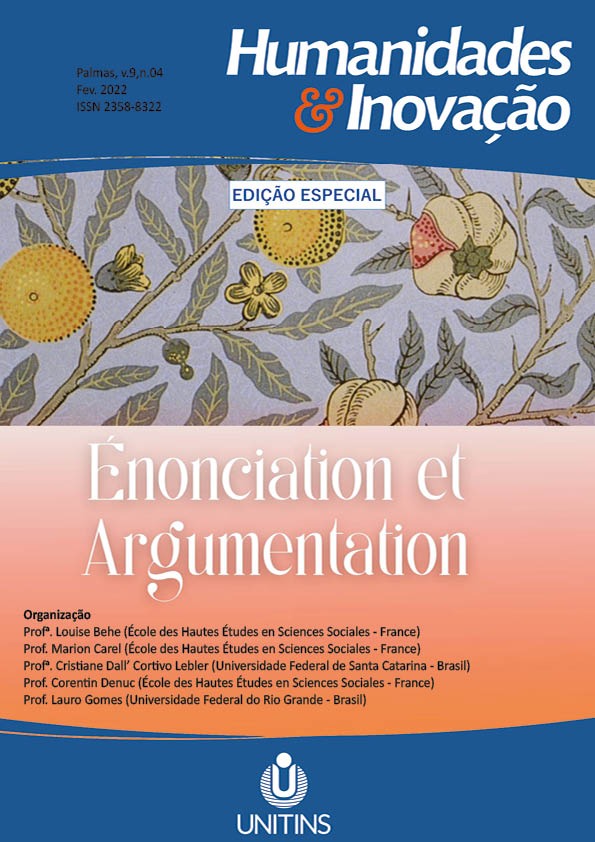LAS ARGUMENTACIONES ENUNCIATIVAS EN UNA RECOMENDACIÓN DE UN FORO DE INTERNET
Abstract
En este artículo proponemos una descripción enunciativa en términos argumentativos de la recomendación de un internauta en un foro público de Internet. Apoyándonos en los últimos desarrollos del enfoque enunciativo del sentido (Carel & Ducrot, 2014; Carel, 2018, 2011; Carel & Ribard, 2019) formulamos la hipótesis de que la intervención, objeto de nuestro estudio, se articula en torno al verbo decir y, más particularmente, de un decir conocedor, por oposición a un decir vacuo o inexperimentado. Este “decir conocedor” tiene como correlato producir la imagen (el ethos) de un locutor legitimado para dar una serie de consejos en una red social cuyos participantes son anónimos.
References
Carel, Marion. « Signification et argumentation », Signo, UNISC, vol. 42, n° 73, 2017. p. 2-20.
Carel, Marion. « Les argumentations énonciatives », publié en français et en traduction portugaise dans Letrônica, volume 11, numéro 2, 2018. p.106-124. [article][artigo]
Carel, Marion. L’entrelacement argumentatif, Paris, 2011, Honoré Champion.
Carel, Marion. Cours de sémantique argumentative in Louise Behe; Marion Carel ; Corentin Denuc ; Julio Cesar Machado [Orgs.]. São Carlos : Pedro & João Editores, Brasil, 2021, leçon XXIII.
Lescano, Alfredo. Le sujet dans la langue. Théorie des Blocs Sémantiques et Théorie Argumentative de la Polyphonie, Verbum XXXVIII, 2016.
Miche, Elisabeth. « Evidentiality, deonticity and intensification in Internet forum language » in Perspectives on Evidentiality in Spanish : Exploration across genres. (Eds.) Carolina Figueras & Adrián Cabedo, John Benjamins, 2018, p. 107-124.
Copyright Notice
The submission of originals to this periodic implies in transference, by the authors, of the printed and digital copyrights/publishing rights. The copyrights for the published papers belong to the author, and the periodical owns the rights on its first publication. The authors will only be able to use the same results in other publications by a clear indication of this periodical as the one of its original publication. Due to our open access policy, it is allowed the free use of papers in the educational, scientific and non-commercial application, since the source is quoted (please, check the Creative Commons License on the footer area of this page).











